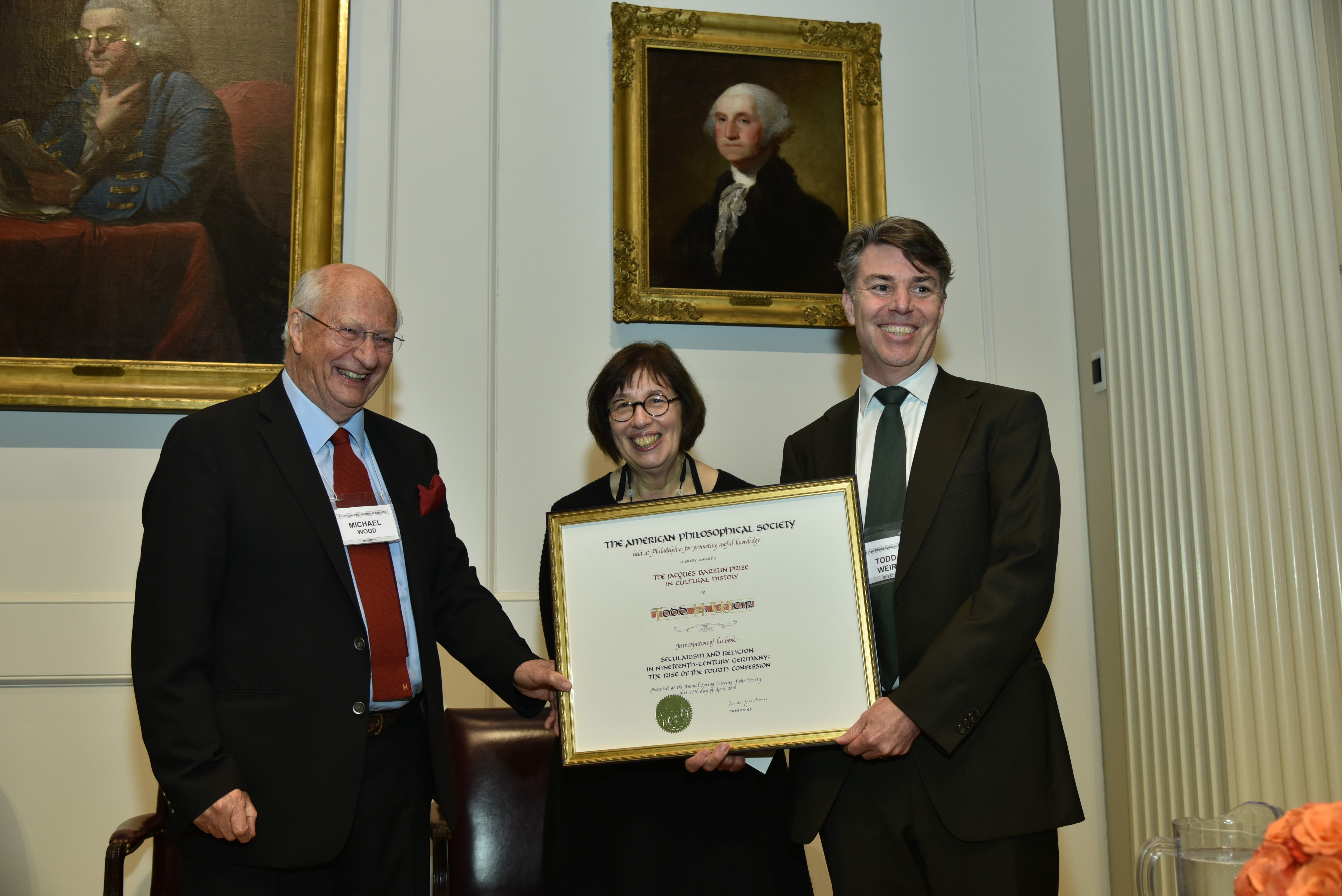2017 Jacques Barzun Prize

2018 Spring General Meeting
Todd H. Weir
The selection for the 2017 Jacques Barzun Prize in Cultural History is Todd H Weir, for his book Secularism and Religion in Nineteenth-Century Germany: the Rise of the Fourth Confession (Cambridge University Press, 2016).
Dr. Weir’s book is a subtle, extensively researched study of a complicated set of historical and philosophical questions. What is secularism, as distinct from secularization? When does a world-view become a form of faith rather than an array of opinions? Is atheism a kind of creed?
The work explores these issues in a particular context, that of Prussia, and especially Berlin, in the nineteenth century. It is ‘modest’, as its author says, in its detailed concentration on ‘somewhat marginal social movements’, like Free Thought, Free Religion, Ethical Culture and Monism, and ‘ambitious’ in its demonstration of secularism’s hitherto neglected role in Germany history, traversing the revolutions of 1848, the establishment of the unified nation, and the Second Reich.
The word ‘confession’ is ordinarily used to identify a declared and organized religious grouping. The three recognized confessions of nineteenth century Germany were Catholicism, Protestantism and Judaism. Dr. Weir takes secularism, in its many different shapes and forms, as a notional fourth type, providing ‘an angle of observation’ that allows him to look without simplification at the ‘dynamics of dissent’. ‘Confessional dissent was necessarily political’, Professor Weir says, and shows that anticlericalism was ‘a force not just against but also within the religious sphere’. Attacks on Catholicism were sometimes pro-Protestant and sometimes more broadly anti-Christian; and Hitler could borrow the language of secularism to make the National Socialists sound more orthodox than the Pope: ‘If the word of the Lord is authoritative, then we are the best’. Dr. Weir does not argue that atheism is a creed, but he does suggest that Free Thought and other movements have often occupied the social and political positions of a religion. This is why he is able to write of a ‘lasting confessionalization of German politics’.
Secularism and Religion in Nineteenth Century Germany makes a large contribution to our understanding of an important and difficult period in recent history.
Todd H. Weir is an associate professor, History of Christianity and Modern Culture, at the University of Groningen. He received his M.Phil. and Ph.D. in Modern European History at Columbia University.
The Jacques Barzun Prize in Cultural History is awarded annually to the author whose book exhibits distinguished work in American or European cultural history. Established by a former student of Jacques Barzun, the prize honors this historian and cultural critic who was elected a member of the American Philosophical Society in 1984.
The selection committee consisted of Michael Wood (chair), Charles Barnwell Straut Professor of English and Comparative Literature, Princeton University; Robert B. Pippin, Evelyn Stefansson Nef Distinguished Service Professor, Committee on Social Thought, Department of Philosophy, University of Chicago; and Frank H. Stewart, Professor Emeritus, Department of Islamic and Middle Eastern Studies, The Hebrew University, Jerusalem.
